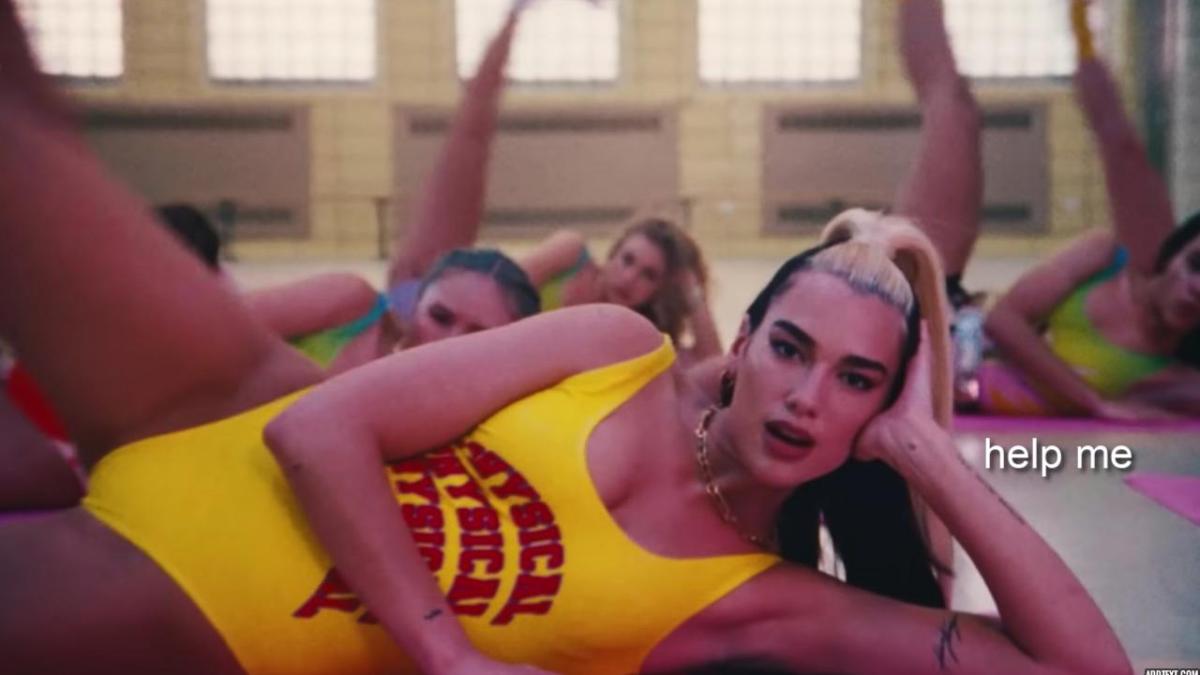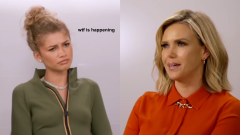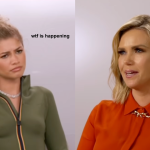
Like a lot of people, I spent the first few weeks of lockdown trying to keep a strict exercise routine. I signed up to apps, used water bottles for weights, and went on at LEAST three whole runs before I gave up on the entire thing. Fuck it, I thought. We’re in lockdown.
So then I just… did nothing. For the first time in my life, I gave myself a free pass from exercise, and counted ‘leaving the house for a walk around the block’ as daily exercise.
And then when lockdown ended, I still did nothing! Literally nothing! The gyms were re-opening, my weekly game of netball was back on, and all I thought was, ugh, don’t have the excuse any more.
So when Fitness First Australia reached out and asked if I’d be interested in an eight-week post-isolation fitness challenge, I jumped at the chance. Maybe this would be the thing to get me out of my couch potato phase. (FYI, Fitness First is also offering free memberships to anyone who lost their job in the pandemic.)
Fitness First set me up with a trainer, Jess Dally-Butler, who turned out to be a freaking angel in disguise. I’m not being dramatic here when I say that working out with Jess in a small group training environment changed my life – and changed my entire understanding of fitness.
First of all, a quick disclaimer: Fitness First comped two months of my membership and small group training. But I found it so vital to my health and well-being (physical and mental) that I’ve continued with it long after my work perk ended.
It’s not accessible to everyone, but small group training is where I choose to spend my money. It’s cheaper (and less intense) than personal training, plus you get the social aspect of getting to know the other people you’re training with. Sometimes, it was knowing I’d get an oxytocin boost from seeing Jess and the other girls in the gym that would get me out of bed in the morning, rather than the exercise endorphins.
A second disclaimer: this isn’t an encouragement to ‘lose the iso kilos’ or whatever other garbage diet culture has told you. We’re living through a pandemic, a number on the scale means nothing, and (for me at least), exercise is about my mental health just as much as my physical health.
But what I want to write about is how this post-iso fitness challenge changed my entire understanding of what exercise could be. It took me 30 years and a bit of luck to get here, so maybe you’ll learn this faster than I did.
So, I present to you: my biggest learnings (to use corporate speak) from the fitness challenge. In other words, here’s all the things that blew my diet culture-addled mind.
Not every workout needs to leave you dying

This was probably my biggest revelation. Somewhere along the way of 30 years, I’ve internalised the idea that unless you’re dripping sweat and aching for days afterwards, you didn’t work hard enough. Sure, sometimes that will be the case. Other sessions would leave me with nothing more than a light sheen of sweat. A glow, if you will.
My training with Jess was usually focused on weights, so I enthusiastically said I would go for a run to get my cardio in on the other days of the week.
She wrinkled her face. “Just go for a walk. With your situation, getting out for a walk will be just as good.”
(For the record, my ‘situation’ was literally doing NO EXERCISE while doing a dangerous dance with burnout. 2020 has been a *year* for everyone, and for me, that looked like covering three once-in-a-lifetime news stories back-to-back.)
So, I changed my mindset from a ‘casual’ 5km run every couple days to a 30min to 60min walk on the days I could do it. On the days I couldn’t quite get there, I went for a walk around the block.
Technique is more important than weight
I now get the stereotype of gym bros asking each other how much they lift, bra. Pushing yourself to add 3kg of weight more than you did the week before is a fkn great feeling. But you know what’s even better? Not adding the extra kilos and instead getting the technique bang-on perfect.
The obvious reason here is that good technique helps prevent injury. The other reason is that once you nail the technique, you can lift even more, bro, and become the gym bore you promised yourself you’d never be.
It’s another reason I’m a huge advocate for small group training now. Having a trainer examine your form, suggest tiny tweaks, and then cheer when you friggin’ nail will help your technique much, much more than watching YouTube tutorials will. (In my experience, anyway.)
Accountability is key
There’s a reason I’ve failed to keep up with every app program I’ve ever downloaded: I’m not accountable.
Like most people, I have a ‘tipping point’ where I convince myself not to bother working out that day. You know, when you decide that actually, you need the sleep more and you’ll totally go for a walk tomorrow so why bother hitting the gym right now? That tipping point.
When I’ve already booked and paid for a session, my ‘tipping point’ is much, much further away. (Don’t think too hard about the logistics of this, it just is far away, okay?)
I know talking about accountability isn’t new, but christ is it worth repeating. Be accountable to someone other than yourself.
Diet is more important than exercise for weight management, but it doesn’t have to be complicated
In the first two weeks, Jess (who has a cert in exercise nutrition as well as a Cert IV in fitness) told me to just concentrate on eating veggies with every meal. That’s it. Get some veggies in you, and don’t worry too much about the rest.
In the two weeks after that, she asked me to try and eat just three meals per day. If I was hungry enough to snack in between, then I probably wasn’t eating enough at the meal (and definitely not enough macros).
The idea behind eating three meals per day is that you lower your chances for making poorer nutritional decisions. There’s a heap of studies on ‘decision fatigue’ and why Steve Jobs wore the same thing every day, but essentially: you get exhausted from constantly making decisions. The less food decisions you need to make in a day, the less likely you’re going to say ‘fuck it’, and order Oporto’s for the third time that week.
Also, eat protein every meal. But as far as the ‘rules’ go, that’s it. Eat veggies. Eat protein. Don’t worry about the rest too much. (Fats and carbs are also good, obviously.) Once you have that down pat, you can start getting more complicated if you want to.
Yes, you probably need to drink more water
I thought I was good at staying hydrated. I sipped on water throughout the day, therefore I was fine, right? But when I added it up, I was probably only getting ~1 litre per day.
There is so, so much advice on how much water we need to be drinking, but the general advice is that you need two to three litres per day,20% of which comes from food. It’s not hard to up your water intake, but you have to be conscious of it in the first place, you know?
Life is not about the scales
Okay, I KNEW this one before I started my fitness challenge, but I didn’t really believe it. I thought I’d lose 5kg, no worries. In fact, I fluctuated hard, in both my weight and my body fat percentage. The first time I saw those numbers trend upwards, it was demotivating as hell. But it didn’t make me give up. These days, I’ve (mostly) stopped paying attention to the scale, and I track myself in other ways: how much I can lift (yeah, I know), if I fit into my favourite pair of jeans, whether I can do a full push up, and my baseline mood. (How good is managing anxiety and depression and stress during a global pandemic?)
It might sound cheesy or whatever, but changing my mindset towards fitness was so, so much more valuable to me than finally hitting some mythological goal weight.







